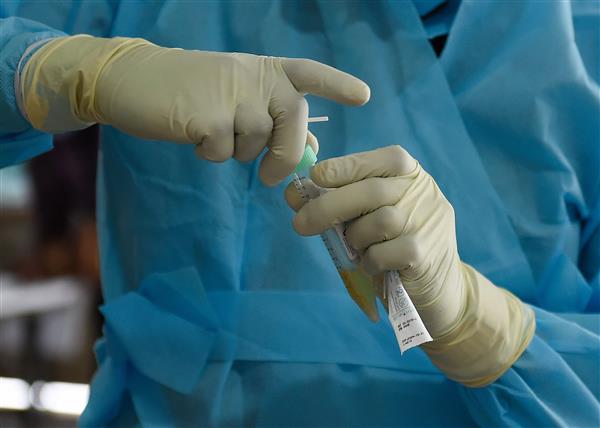
Washington, June 7
More emphasis should be placed on addressing the inaccuracy of diagnostic tests for COVID-19, which play a key role in containing the pandemic, say scientists, who suggest that government agencies urge manufacturers to provide details of their tests' clinical sensitivity.
The researchers, including those from The Geisel School of Medicine at Dartmouth in the US, said there is lack of widespread testing as a major barrier to safely reopening economies.
In the analysis, published in the New England Journal of Medicine, the scientists said while progress has been made in expanding testing, there is still concern on the accuracy of the process.
"Diagnostic tests, typically involving a nasopharyngeal swab, can be inaccurate in two ways," said study lead author Steven Woloshin from The Geisel School of Medicine.
A false-positive result mistakenly labels a person infected, with consequences including unnecessary quarantine and contact tracing, Woloshin explained.
According to the scientists, the sensitivity for many available tests could be substantially lower.
Citing earlier studies, they said this value could be 70 per cent.
"At this sensitivity level, with a pretest probability of 50 per cent, the post-test probability with a negative test would be 23 per cent -- far too high to safely assume someone is uninfected," the scientists wrote in the journal article.
"False-negative results are far more consequential because infected persons who might be asymptomatic may not be isolated and can infect others," Woloshin said.
In their analysis, the researchers discussed factors contributing to the current limitations of diagnostic tests.
They said variability in test sensitivity, and the lack of a standard process for validating this is a cause for concern.
Citing several large studies, the researchers also said frequent false-negative results reported in several parts of the world are concerning.
From an analysis of a preprint systematic review of five studies, involving 957 patients “under suspicion of COVID-19” or with “confirmed cases”, the scientists said false negatives ranged from 2 to 29 per cent.
But they said this evidence is less concrete due to the differences among the nature of the diagnosis tests used to assess these patients.
"However, the certainty of the evidence was considered very low because of the heterogeneity of sensitivity estimates among the studies, lack of blinding to index-test results in establishing diagnoses, and failure to report key RT-PCR characteristics," the scientists wrote in their analysis.
Based on their assessment of review research about diagnosis tests, the researchers said, frequent false negatives in the commonly used diagnosis method, RT-PCR, is concerning while the evidence on this also limited.
"Diagnostic testing will help to safely open the country, but only if the tests are highly sensitive and validated against a clinically meaningful reference standard -- otherwise we cannot confidently declare people uninfected," Woloshin said.
The researchers said, drug approval agencies like the US Food and Drug Administration (FDA) should ensure that test manufacturers provide details of their tests' clinical sensitivity, and specificity at the time of market authorisation.
They said tests without such information will have less relevance to patient care.
"Measuring the sensitivity of tests in asymptomatic people is an urgent priority," Woloshin said.
"A negative result on even a highly sensitive test cannot rule out infection if the pretest probability—an estimate before testing of a person's chance of being infected—is high, so clinicians shouldn't trust unexpected negative results," he added.
According to Woloshin, this estimate might depend on how common COVID-19 is where a person lives, their exposure history, and symptoms.
Join Whatsapp Channel of The Tribune for latest updates.



























